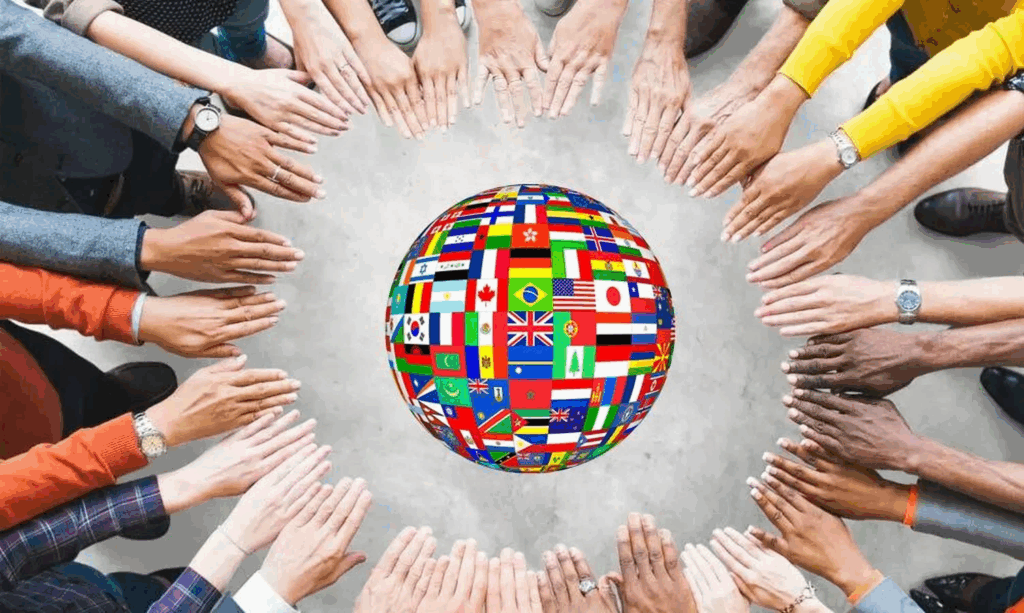The Power of Cultural Exchange Through Travel.
The Power of Cultural Exchange Through Travel.

Travel has long been one of the most profound ways to experience the world beyond the familiar. Beyond the mere act of moving from one place to another, travel opens doors to cultural exchange—a dynamic process where people from different backgrounds share ideas, traditions, and perspectives. This exchange fosters mutual understanding, personal growth, and global connections, highlighting the transformative power travel holds in bridging cultural divides.
What is Cultural Exchange?
Cultural exchange involves the sharing and interaction of cultural elements such as language, customs, food, art, music, beliefs, and social norms. It occurs naturally when people from diverse cultures come into contact, learn from each other, and appreciate differences and similarities.
Unlike tourism focused solely on sightseeing, cultural exchange emphasizes participation, dialogue, and immersion. It encourages travelers to go beyond surface experiences and engage authentically with local communities.
Breaking Down Stereotypes and Building Empathy
One of the most significant impacts of cultural exchange through travel is its ability to challenge preconceived notions and stereotypes. When people rely solely on media or hearsay to understand other cultures, they often form incomplete or biased images. Personal interactions during travel provide firsthand experience that humanizes those differences.
For example, a traveler who visits a rural village and shares meals with local families gains insights into daily life, values, and struggles that defy simplistic stereotypes. Such experiences cultivate empathy and a deeper appreciation of cultural diversity.
By confronting stereotypes, cultural exchange promotes tolerance and reduces xenophobia. It reminds us that beneath cultural distinctions lie shared human experiences—joy, sorrow, hopes, and dreams.
Enriching Personal Growth and Worldview
Travel as cultural exchange is a catalyst for personal transformation. Immersing oneself in unfamiliar customs, languages, and ways of thinking broadens horizons and fosters adaptability. This exposure encourages self-reflection and challenges assumptions, making travelers more open-minded and culturally sensitive.
Living briefly in another culture often pushes people out of their comfort zones. Navigating new social norms or learning a few phrases in a foreign language enhances communication skills and confidence. Moreover, engaging with different worldviews helps individuals question ethnocentric attitudes and appreciate multiple ways of living and thinking.
Such experiences often lead to lifelong curiosity about the world, sparking interests in global issues, intercultural relationships, or further travel and study.
Preserving and Sharing Cultural Heritage
Cultural exchange is a two-way street. While travelers gain knowledge and inspiration, local communities also benefit by sharing their heritage with a wider audience. This sharing can help preserve traditional arts, crafts, music, and rituals that might otherwise fade amid globalization.
In many regions, cultural exchange through travel supports local artisans and performers economically and socially. For example, cultural festivals that welcome visitors provide platforms for communities to showcase their music, dance, and crafts, generating pride and continuity.
Furthermore, when cultural exchange is conducted respectfully, it allows communities to assert control over their cultural narrative rather than having it defined or appropriated externally.
Strengthening Global Connections and Peace
In an interconnected world facing global challenges such as climate change, migration, and political conflict, cultural exchange through travel plays a critical role in fostering international understanding and cooperation.
By bringing people from diverse cultures together, travel promotes dialogue and builds networks of friendship and collaboration. These personal connections can break down barriers and contribute to peacebuilding efforts.
International student exchanges, volunteer programs, and cultural tours are examples of structured travel initiatives designed to maximize cultural exchange’s potential for mutual benefit and global solidarity.
Challenges and Ethical Considerations
While cultural exchange through travel has immense potential, it also faces challenges. Unbalanced power dynamics, cultural insensitivity, and commercialization risk turning genuine exchange into superficial or exploitative encounters.
Travelers must approach cultural exchange with humility, respect, and a willingness to listen rather than impose their own values. Equally important is supporting local communities economically and ethically, ensuring that benefits are fairly distributed and cultural integrity preserved.
Responsible travel practices include learning about local customs beforehand, engaging in community-led tourism, and being mindful of environmental impact.
How to Engage in Meaningful Cultural Exchange
- Be Curious and Open: Approach new cultures with genuine interest and a non-judgmental attitude.
- Learn the Language: Even basic greetings or phrases can open doors and show respect.
- Participate Respectfully: Join local events or workshops, but always seek permission and respect boundaries.
- Support Local Economies: Purchase handmade goods and services directly from local providers.
- Reflect on Experiences: Take time to process what you’ve learned and how it affects your worldview.
Real-World Examples of Cultural Exchange Through Travel
- Homestays: Staying with local families provides immersive insight into everyday life, traditions, and cuisine.
- Cultural Festivals: Events like Japan’s Cherry Blossom Festival or India’s Diwali celebrations welcome international visitors to share in local heritage.
- Volunteer Tourism: Programs that pair travel with community service foster meaningful connections and contribute positively to host communities.
- Educational Exchanges: Study abroad programs and internships abroad immerse students in new academic and social environments.
Conclusion
The power of cultural exchange through travel lies in its ability to connect people beyond borders, fostering understanding, empathy, and shared humanity. In a world often divided by difference, cultural exchange reminds us that diversity is not a barrier but a bridge to deeper knowledge and respect.
By traveling mindfully and engaging authentically with other cultures, we not only enrich our own lives but contribute to a more compassionate and interconnected world.


